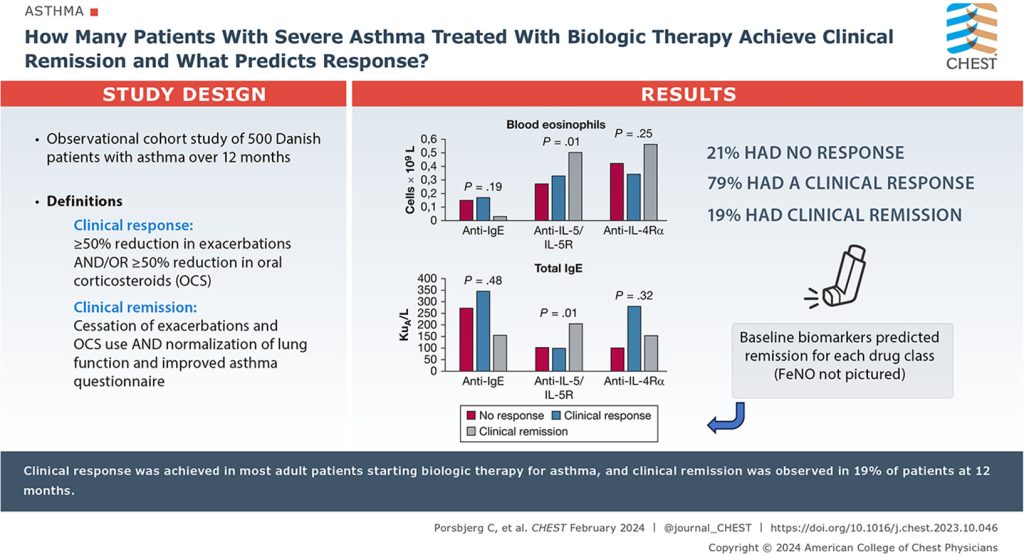
Hansen S, Baastrup Søndergaard M, von Bülow A, Bjerrum AS, Schmid J, Rasmussen LM, Johnsen CR, Ingebrigtsen T, Håkansson KEJ, Johansson SL, Bisgaard M, Assing KD, Hilberg O, Ulrik C, Porsbjerg C. Chest. 2024 Feb;165(2):253-266. doi: 10.1016/j.chest.2023.10.046.
Background
The development of novel targeted biologic therapies for severe asthma has provided an opportunity to consider remission as a new treatment goal.
Research Question
How many patients with severe asthma treated with biologic therapy achieve clinical remission, and what predicts response to treatment?
Study Design and Methods
The Danish Severe Asthma Register is a nationwide cohort including all adult patients receiving biologic therapy for severe asthma in Denmark. This observational cohort study defined “clinical response” to treatment following 12 months as a ≥ 50% reduction in exacerbations and/or a ≥ 50% reduction in maintenance oral corticosteroid dose, if required. “Clinical remission” was defined by cessation of exacerbations and maintenance oral corticosteroids, as well as a normalization of lung function (FEV1 > 80%) and a six-question Asthma Control Questionnaire score ≤ 1.5 following 12 months of treatment.
Results

Following 12 months of treatment, 104 (21%) of 501 biologic-naive patients had no response to treatment, and 397 (79%) had a clinical response. Among the latter, 97 (24%) fulfilled the study criteria of clinical remission, corresponding to 19% of the entire population. Remission was predicted by shorter duration of disease and lower BMI in the entire population of patients treated with biologic therapy.
Interpretation
Clinical response was achieved in most adult patients initiating biologic therapy, and clinical remission was observed in 19% of the patients following 12 months of treatment. Further studies are required to assess the long-term outcome of achieving clinical remission with biologic therapy.
